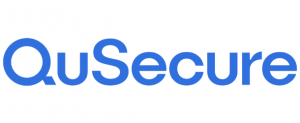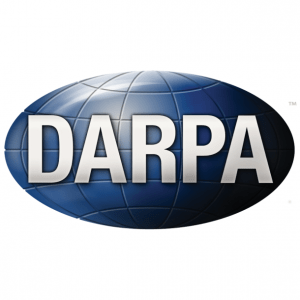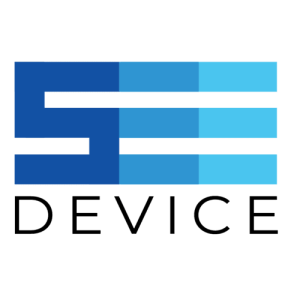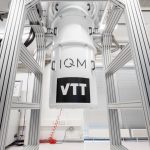Quantum News Briefs October 24: QuSecure expands quantum cybersecurity ecosystem with new global partner program; BlueQubit, Inc.selected for DARPA’s Imagining Practical Applications for a Quantum Tomorrow program; 2 QuEra computing projects awarded DARPA IMPAQT contracts to advance quantum algorithms for neutral-atom quantum computers + MORE

Quantum News Briefs October 24:
QuSecure expands quantum cybersecurity ecosystem with new global partner program
 QuSecure, Inc., a leader in post-quantum cryptography (PQC), launched its new global partner program. It is the company’s first formal global channel partner program for value added resellers, systems integrators, solutions providers, and managed service providers.
QuSecure, Inc., a leader in post-quantum cryptography (PQC), launched its new global partner program. It is the company’s first formal global channel partner program for value added resellers, systems integrators, solutions providers, and managed service providers.
The launch of this new program will enable QuSecure to address the unprecedented global demand for its PQC solution. Additionally, QuSecure has hired Stuart Oliver as Vice President of world-wide partner go-to-market programs to facilitate QuSecure’s growing partner ecosystem and the Partner Program.
The QuSecure Partner Program will expand the ecosystem of engaged QuSecure partners delivering unique customer value through the differentiated QuSecure quantum-resilient cryptographic solution. QuSecure’s QuProtect PQC solution enables partners by providing a significant greenfield market opportunity to develop and support the quantum resiliency needs of their customers.
The QuSecure Partner Program is designed to support progressive partners looking for a first-mover advantage to build the foundation of a new quantum resilient revenue stream. The program provides formalized sales, pre-sales, and technical training focused on enabling partners to grow revenue. QuSecure also provides partners with sales and marketing benefits, along with discounts to capture new revenue opportunities.
QuSecure is the first and only U.S.-based company to offer generally available PQC software through the worldwide channel’s ecosystem with generally available, quantum-resilient solutions for partners to drive additional consulting and integration revenue streams. QuSecure partners play a crucial role in expanding QuSecure’s global reach to organizations looking to future-proof their strategies and infrastructure to protect critical data with enablement for partners to sell, integrate and support quantum resiliency for their clients. Click here to read complete announcement.
BlueQubit, Inc.selected for DARPA’s ImaginingPractical Applications for a Quantum Tomorrow program
 BlueQubit Inc., a technology company building quantum software and infra, had announced its selection for the Defense Advanced Research Projects Agency (DARPA) project under the Imagining Practical Applications for a Quantum Tomorrow (IMPAQT) program. Quantum News Briefs summarizes the announcement.
BlueQubit Inc., a technology company building quantum software and infra, had announced its selection for the Defense Advanced Research Projects Agency (DARPA) project under the Imagining Practical Applications for a Quantum Tomorrow (IMPAQT) program. Quantum News Briefs summarizes the announcement.
This award emphasizes the company’s commitment to revolutionizing the quantum computing landscape, with a focus on development of quantum AI/ML algorithms for Noisy Intermediate-Scale Quantum (NISQ) devices.
DARPA has identified BlueQubit’s objective of addressing challenges faced by classical computers. A notable challenge has been in areas like cybersecurity in defense and training of large AI models. With the advent of quantum hardware boasting more than 100 qubits and 10,000 two-qubit gates, new horizons of solutions are emerging.
“We’re venturing into uncharted territories, focusing on hybrid computing environments. Quantum/classical hybrid algorithms, like QAOA, are the game-changers we’re betting on,” said Hayk Tepanyan, CTO at BlueQubit Inc. These algorithms are designed to maximize the potential of full NISQ devices and find solutions without necessitating fault-tolerant quantum computers.
Particularly noteworthy is BlueQubit’s collaboration with the quantum hardware company, QuEra. Their shared expertise on neutral-atom quantum computers – known for their scalability and improved gate fidelity – is central to the project.
Two QuEra computing projects awarded DARPA IMPAQT contracts to advance quantum algorithms for neutral-atom quantum computers
 QuEra Computing announced on October 23 that it has received two grants from Defense Advanced Research Projects Agency (DARPA) as part of the Imagining Practical Applications for a Quantum Tomorrow (IMPAQT) program to advance the state-of-the-art in quantum algorithms and application development. Quantum News Briefs summarizes the announcement.
QuEra Computing announced on October 23 that it has received two grants from Defense Advanced Research Projects Agency (DARPA) as part of the Imagining Practical Applications for a Quantum Tomorrow (IMPAQT) program to advance the state-of-the-art in quantum algorithms and application development. Quantum News Briefs summarizes the announcement.
The two grants awarded to QuEra are for “Quantum Reservoir Learning using Neutral Atoms and its Applications” and “Error-Corrected Quantum Architectures Based on Transversal Logical Gates.” In addition, five of QuEra’s partners also received DARPA IMPAQT grants for their projects conducted on QuEra neutral atom-based quantum computers.
The DARPA IMPAQT program funds novel applications and algorithms that can use practical quantum platforms that could be demonstrated in the next few years. IMPAQT seeks to link quantum computing researchers to application domain experts working on classical platforms to address their target problems.
QuEra’s technology is built on large-scale arrays of neutral atoms. It currently offers users up to 256 qubits on its Aquila-class machines, available for access on a major public cloud platform, and the company is actively working towards scaling up to much higher numbers. QuEra’s designs feature a unique combination of system size, coherence, and an innovative analog quantum processing mode that provides new ways to solve machine learning, optimization, and simulation problems.
The first QuEra project to receive a DARPA IMPAQT grant is focused on “Quantum Reservoir Learning using Neutral Atoms and its Applications” and is based on the team’s previous quantum machine learning proof-of-concept of the method for MNIST handwritten digit data sets. In the 12-month project.
The second project, “Error-Corrected Quantum Architectures Based on Transversal Logical Gates,” aims to enhance existing surface code quantum computation schemes with the use of transversal logical entangling gates, analyzing their implementation and performance in detail on state-of-the-art neutral atom array quantum computers. Click here to read the announcement in-entirety on the QuEra website.
SeeDevice recognized as ‘Company of the Year’ of semiconductor tech startups 2023 by Semiconductor Review for QMOS™ (Quantum effect CMOS)
 SeeDevice Inc., the fabless QMOS™ (Quantum effect CMOS) SWIR sensor developer, announced October 16 that it has been recognized as Company of the Year of the Top 10 Semiconductor Tech Startups 2023 by Semiconductor Review, an established magazine that provides comprehensive views of recent developments in the semiconductor space. This award is evaluated by a panel following the standard MCDA (multi-criteria decision analysis) method and peer recommendation. Dr. Hoon Kim, Founder and CEO of SeeDevice will speak at IQT NYC 2023. Quantum News Briefs summarizes the announcement with details about SeeDevice’s technology.
SeeDevice Inc., the fabless QMOS™ (Quantum effect CMOS) SWIR sensor developer, announced October 16 that it has been recognized as Company of the Year of the Top 10 Semiconductor Tech Startups 2023 by Semiconductor Review, an established magazine that provides comprehensive views of recent developments in the semiconductor space. This award is evaluated by a panel following the standard MCDA (multi-criteria decision analysis) method and peer recommendation. Dr. Hoon Kim, Founder and CEO of SeeDevice will speak at IQT NYC 2023. Quantum News Briefs summarizes the announcement with details about SeeDevice’s technology.
SeeDevice’s technology was developed to extend the range of pure CMOS sensors by leveraging two key concepts – plasmonics and quantum tunneling – to see beyond visible light into the short-wave infrared (SWIR) region while overcoming the high costs associated with exotic material-based SWIR sensors. The resulting technology has exceeded expectations and outperformed expensive competitors, attracting the attention of various industries.
“SeeDevice’s patented silicon-based quantum effect photodetector technology delivers high-performance SWIR capabilities in proven, cost-effective standard CMOS processes. It enables mass production and we’re ready,” said Dr. Hoon Kim, Founder and CEO of SeeDevice.
Dr. Kim, a semiconductor pioneer with over 25 years of research experience in nanophotonic and quantum electronics, will speak at IQTNYC 2023, the leading conference and exhibition organization covering quantum computing and technology worldwide.
SeeDevice is positioned at the forefront of the industry, offering high sensitivity, nanosecond integration time, scalability, and wide dynamic and spectral range (200-1650nm) to provide unmatched performance for clients’ needs spanning across biomedical, automotive, surveillance, agriculture, and consumer products like mobile phones and machine vision-enabled industry applications. Recently, SeeDevice has successfully developed a NI-CGM (Non-invasive continuous glucose monitoring) device and is currently in clinical trials with plans to enter the CGM market soon. Click here to read the news announcement in-entirety.
Sandra K. Helsel, Ph.D. has been researching and reporting on frontier technologies since 1990. She has her Ph.D. from the University of Arizona.



















